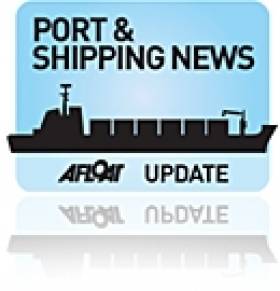Displaying items by tag: Barry Shipping
New Ship-Management Company Launched in Cork
#PORTS & SHIPPING NEWS – The Irish Maritime Development Office (IMDO) have welcomed a newly founded ship-management company, Barry Shipping, which started operations in Cork at the end of last year.
The company headed by Corkonian Owen Barry, provides ship management, crew management, project management, training and a range of other services for the maritime industry.
Glenn Murphy, director of the IMDO said "We wish Barry Shipping well with their new venture and look forward to providing them with further strategic and network support to assist them during their continued development".
Commenting on their future strategy Barry said, "The company's aim is to provide clients with creative and profitable solutions to meet and overcome some of the unique challenges in the current climate".
Barry graduated from Cork Institute of Technology (CIT) in 1996 and started his career with BP Shipping as an Engineering Cadet. This was followed by working with leading passenger operators Irish Ferries, P&O Cruises and Dobson Fleet Management where he served as Chief Engineer and Technical Superintendent. In 2009 he returned to Cork to run operations for Fastnet Line.
For more information about the new company, visit www.barryshipping.com
In addition for details about the role of the (IMDO) which is Ireland's national dedicated development, promotional and marketing agency for the shipping services sector click HERE





























































